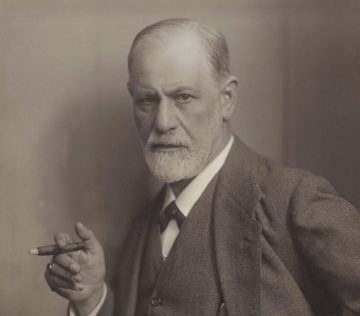Elizabeth Lunbeck (and others) at Public Books:
 It would be hard to overestimate the significance of Freud’s The Ego and the Id for psychoanalytic theory and practice. This landmark essay has also enjoyed a robust extra-analytic life, giving the rest of us both a useful terminology and a readily apprehended model of the mind’s workings. The ego, id, and superego (the last two terms made their debut in The Ego and the Id) are now inescapably part of popular culture and learned discourse, political commentary and everyday talk.
It would be hard to overestimate the significance of Freud’s The Ego and the Id for psychoanalytic theory and practice. This landmark essay has also enjoyed a robust extra-analytic life, giving the rest of us both a useful terminology and a readily apprehended model of the mind’s workings. The ego, id, and superego (the last two terms made their debut in The Ego and the Id) are now inescapably part of popular culture and learned discourse, political commentary and everyday talk.
Type “id ego superego” into a Google search box and you’re likely to be directed to sites offering to explain the terms “for dummies”—a measure of the terms’ ubiquity if not intelligibility. You might also come upon images of The Simpsons: Homer representing the id (motivated by pleasure, characterized by unbridled desire), Marge the ego (controlled, beholden to reality), and Lisa the superego (the family’s dour conscience), all of which need little explanation, so intuitively on target do they seem.
more here.
